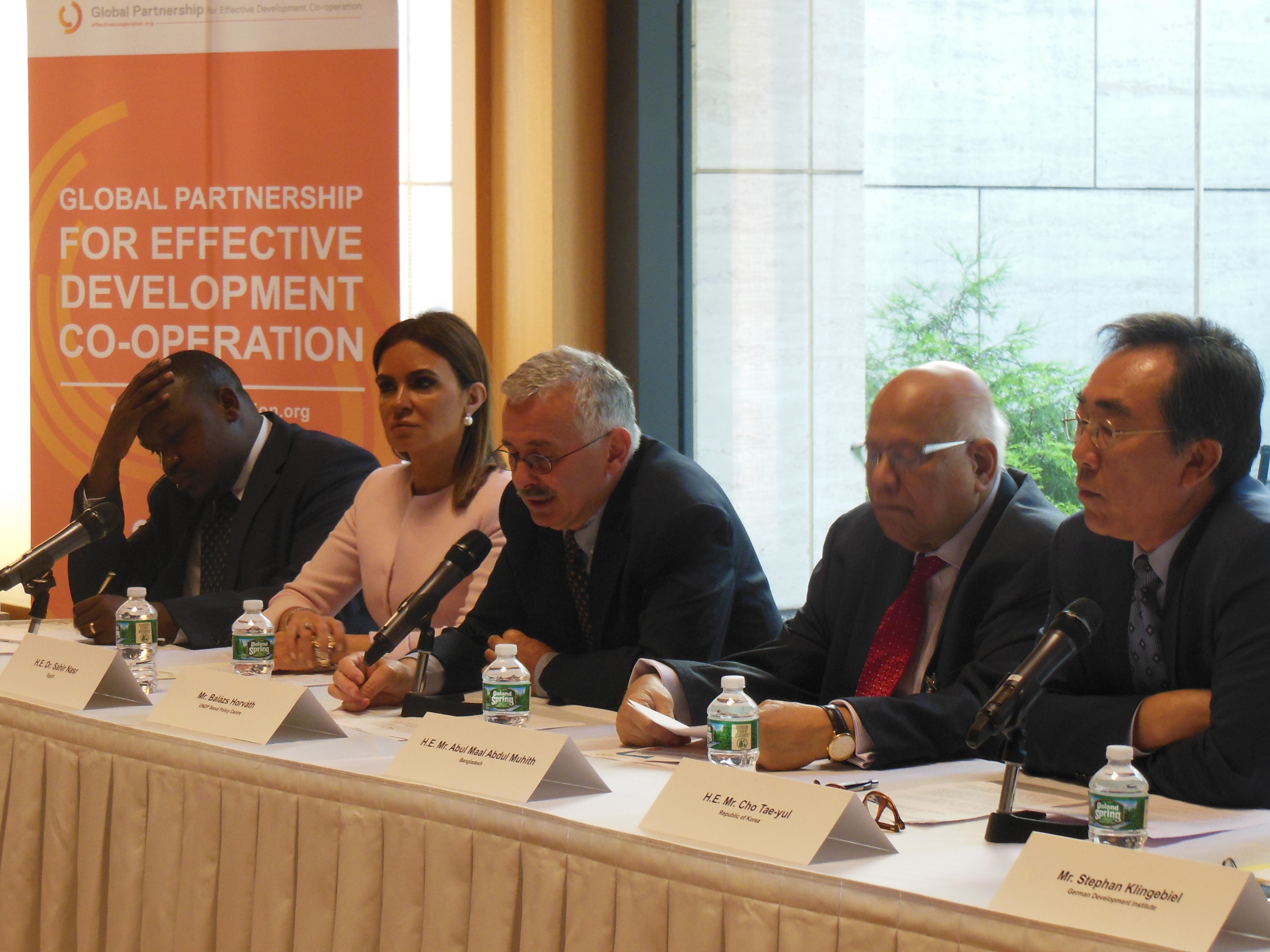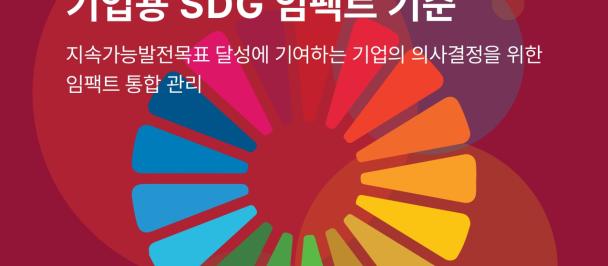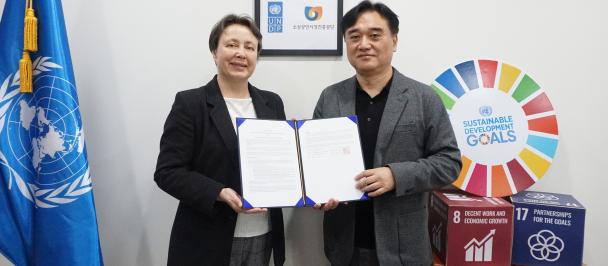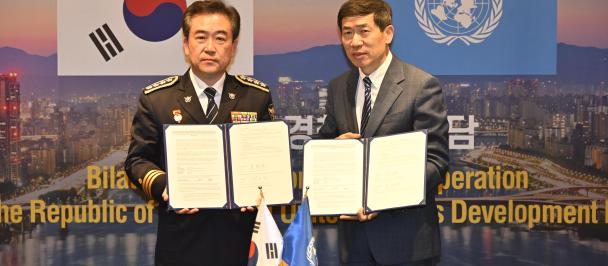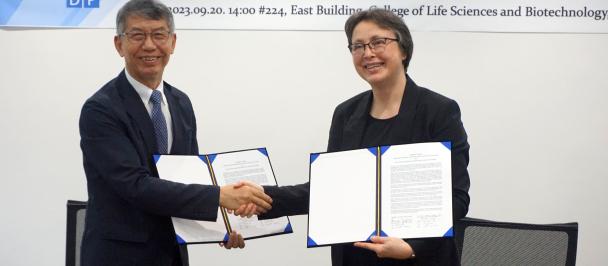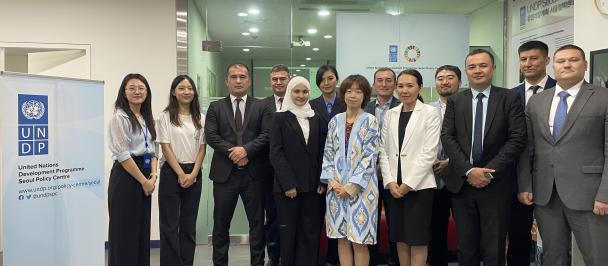--- Image caption ---
Today, in the margins of the UN High-Level Political Forum (HLPF) on Sustainable Development, the governments of Bangladesh and the Republic of Korea co-hosted a Global Partnership for Effective Development Co-operation side event on Enhancing the global partnership for sustainable development: Country-level frameworks for resilient, multi-stakeholder partnerships.
Attended by over 100 participants, the event brought together stakeholders from various circles including government, civil society, the private sector, academia and UN agencies to discuss good practices and progress on institutionalising multi-stakeholder frameworks at the country level to increase the effectiveness of co-operation and support achievement of the Sustainable Development Goals (SDGs).
In today’s evolving international landscape, development challenges are increasingly complex, persistent and interlinked. As such, achieving sustainable development for everyone, everywhere, calls for strong, equal partnerships between all stakeholders. Participation of civil society organisations, the private sector and other local development partners in all phases of development policy-making, planning and implementation helps ensure that resources are used effectively, capitalising on the comparative advantage of every stakeholder group and sharing resources, technology and knowledge.
However, the state of play from the last round of Voluntary National Reviews (VNRs) shows that many countries face challenges in consolidating effective multi-stakeholder engagement, particularly facilitating meaningful stakeholder participation and maintaining collaborative relationships. The GPEDC’s monitoring framework, which measures country-level progress in this domain, also underscores similar challenges.
In his opening remarks, H.E. Ambassador Cho Tae-yul, Permanent Representative of the Republic of Korea to the UN, emphasized that one of GPEDC’s unique features is its multi-stakeholder platform, calling the national-level monitoring framework “a demonstration of how stakeholders and partners engage in development co-operation in the era of SDGs by measuring their development impact at the national level.” Bangladesh’s Minister of Finance, H.E. Mr. Abul Maal Abdul Muhith, also recognised that to leave no one behind and meet global promises by 2030, we need to effectively engage all relevant stakeholders in development policy-making, planning and implementation, much like Bangladesh’s own local consultative processes and spaces for open dialogue and coordinated policies.
The side event generated evidence-based dialogue, with a wide array of panelists presenting including Ministers from the Dominican Republic and Egypt, representatives from the governments of Honduras, civil society (CSO Partnership for Development Effectiveness), private sector (Center for International Private Enterprise), and multi-lateral institutions (World Bank). The discussions led an honest debate around how country-level, multi-stakeholder partnerships can help implement the SDGs and how they might be reflected in VNRs.
Joining 46 other countries who have reported to this year’s VNR process and having also participated in the GPEDC’s 2016 monitoring round, Egypt spoke to the importance of aligning development partners’ programmes with country frameworks and national priorities. Dominican Republic also appreciated the GPEDC’s monitoring process in that it allows for countries and development partners to thoroughly assess their yearly progress in effective development co-operation. Honduras also announced its ongoing plans to participate in the GPEDC’s 2018 monitoring round.
During the event, practitioners from civil society, banks and private sector also embraced multi-actor partnerships. Ms. Jaehyang So, a representative from the World Bank, stressed that sharing country best practices, like GPEDC aims to do with the Global Compendium and Knowledge-Sharing Platform, is important in identifying opportunities for collaboration. Dr. Kim Bettcher from the Center for International Private Enterprise mentioned that more progress can be made with promising initiatives such as GPEDC’s business leader caucus and more than US $12 trillion locked in SDG funding opportunities.
In a recent blog, H.E. Ms. Hyunjoo Oh, Director-General of International Co-operation of the Republic of South Korea, supported such events, calling them ‘inclusive, unique and evidence-based’ as they explore context-specific opportunities for successful development partnerships – the key to achieving the global goals for everyone, everywhere.
For more information on the event, click here.

 Locations
Locations